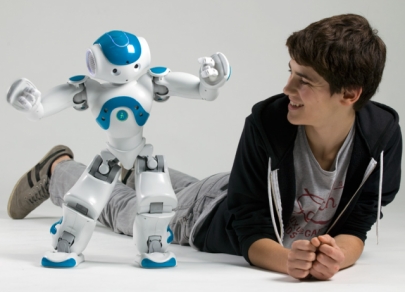FX.co ★ Six ways to stay competitive in the robotic era
Six ways to stay competitive in the robotic era
Experts believe that many people could become unemployed because a large number of jobs willbe automated in the near future. The question is relevant not only in the practice of replacing people with automatic machines on assembly lines, but for any work activity. According to Alec Ros, former innovation adviser to Hillary Clinton, new technologies start to squeeze the middle class jobs. He gives some tips how to live alongside robots.

You have got to be a committed lifelong learner. This advice is always relevant, especially in the digital age. Previously, the knowledge gained at the university was enough for a long time, almost for the whole working career, but now the ground shifting under your feet is going to shift whether you like it or not, and the rejection to keep pace with the time is the right way to fail.

In the future, all people will need programming skills. It's not about becoming the computer scientist, but about gaining such elementary knowledge as the ability to use spreadsheets and office software. Basic computer knowledge is necessary for everyone, Alec Ross believes.

People should move forward, progress in various fields and be well-versed in technology and science. In order to succeed, it is necessary to combine knowledge with social skills, such as emotional intelligence and psychology.

It is important to learn one or two new languages. This is essential for further communication on a global scale, Alec Ross stresses. He reckons that in 10-15 years it will be possible to translate statements into 100 languages in real time with the help of special earphone. However, there is a huge difference between translation and communication. Real knowledge and understanding of a foreign language is a treasure to use, the expert says.

Breaking new ground is one of the key ways to bypass robots, Alec Ross claims. In the nearest future, such spheres as robotics, artificial intelligence, storage and processing large amounts of data, cybersecurity,as well as money and trust codification will be the most promising industries. In the fields of psychology and psychiatry, robots also will not be able to replace human understanding and participation, especially when making diagnoses.

People should not become slaves of usual algorithms, Alec Ross thinks. He believes that it is human qualities that will be of particular importance in the digital future. Individuality will play a key role, and people capable to resist the overwhelming computers' influence will become leaders.






















